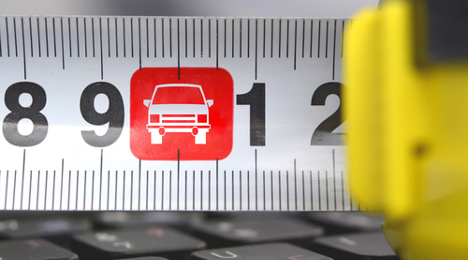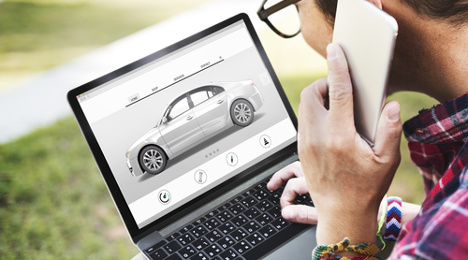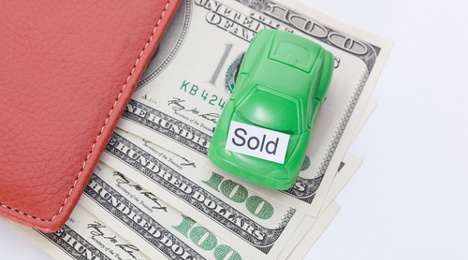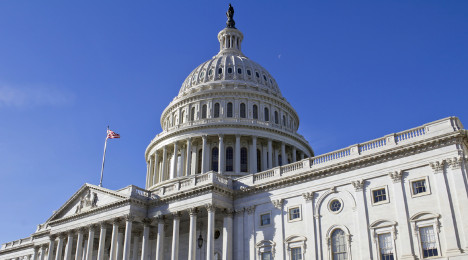Dealers could benefit from a new program to help them turn their new models from Jeep, Hyundai, Ram, Dodge, Fiat and Chrysler.
LegalShield, a consumer membership company that allows subscribers to connect with law firms for personal legal advice or assistance, formed a partnership on Monday with BonusDrive, a firm that can deliver benefit programs on behalf of insurance companies, employers, associations, credit unions, co-ops and other organizations.
The companies rolled out a program that offers a $500 rebate to members who buy or lease new Jeep, Hyundai, Ram, Dodge, Fiat and Chrysler vehicles. The partnership was unveiled by LegalShield chief executive officer Jeff Bell and BonusDrive co-chief executive officer Jim Evans.
“We always are attempting to enhance the benefits for our members,” Bell said. “For our members of LegalShield, the BonusDrive program is another easy way to bring them value at every turn.”
According to Evans, BonusDrive is unlike other offers from manufacturers and dealers, since it can be combined with applicable discounts, rebates, incentives and promotions LegalShield members already have negotiated.
Evans also noted that the rebate process is designed to be simple. After the LegalShield member makes the deal with a Jeep, Hyundai, Ram, Dodge, Fiat or Chrysler dealer, and the purchase or lease is complete, the member will need to fill out the quick BonusDrive application online within 60 days.
Once the application is approved, in approximately six weeks, the member will receive a check in the mail for $500, with no restrictions on how the money is to be spent.
LegalShield members can call (888) 982-6687), email [email protected] or visit www.BonusDrive.com for program and application details.
Sixty-eight percent of dealers either aren’t effectively using or simply are not using marketing attribution to gauge the results of their advertising campaigns, according to a recent study by Clarivoy.
The marketing technology firm’s latest study, the 2017 State of Automotive Attribution Report, examines the current state and usage of marketing measurement among retail dealers.
Clarivoy's findings are based on an April survey of approximately 120 dealers.
“This is a glaring hole and effectively makes measuring marketing efforts and spending a guessing game,” Clarivoy chief executive officer Steve White said in a news release.
“Things have changed considerably with the state of marketing measurement, and we wanted to know how dealers are adapting to new measurement tools like Multi-Touch Attribution,” he said.
Clarivoy found that only 30 percent of dealers report being satisfied with how they currently measure their data.
When asked, “Which vendor categories need the most blind faith as to if they are working?” Forty percent of dealers told Clarivoy display ads and 38 percent said third-party listing sites.
According to the study, most dealers rely on in-house reporting and/or vendor reporting (68 and 64 percent, respectively).
“The display ad answer is a little curious as, set up properly, they should be easy to measure,” White said. “However, the third-party listing site answer is not that surprising.
“The actions a consumer takes following a visit to a third-party listing site and viewing a vehicle of interest can vary over an entire spectrum of possibilities. They could submit a lead on the third-party listing site, call a phone number, bounce to the dealership’s website and convert there, call the dealership or simply show up,” he said.
“The effectiveness of a third-party listing site can be far from black and white in terms of measurement. And, more often than not, attribution depends on proper sourcing by the salesperson or last-click attribution models — both of which have huge gaps in accuracy,” White explained.
When it comes to attribution tools, 46 percent of respondents said they would prefer a multi-touch attribution solution because they believe that last-click fails to report accurate sources, according to Clarivoy.
Additionally, Clarivoy found that 59 percent of dealers want attribution solutions that include the ROI contribution of each marketing channel.
Fifty-seven percent want analytics that provide actionable insights, 48 percent desire a transparent view of a customer’s full purchase path and 41 percent look for both reporting accountability and accuracy.
To view the State of Automotive Attribution Report study click here.
Seven Democratic lawmakers are trying again to push legislation that would prohibit the retailing of vehicles with an unfulfilled recall; a plan prompting the two largest dealership associations to reiterate their objections and explain the potential unintended consequences.
Amid all the hubbub over healthcare and the revolving door at the White House, late last week a proposal dubbed the Used Car Safety Recall Repair Act surfaced on Capitol Hill as lawmakers leveraged reports over another potential fatality involving faulty Takata airbags. While both the National Automobile Dealers Association and the National Independent Automotive Dealers Association want to retail safe vehicles, the groups fear this measure would hamstring dealers and impact owners significantly.
“NIADA shares the goal of 100 percent recall completion rates and supports public policies designed to achieve that goal. However, overbroad legislation prohibiting dealers from selling any used motor vehicle with any open recall does not move us toward that goal,” NIADA senior vice president of legal and government affairs Shaun Petersen wrote in a message to Auto Remarketing.
“This legislation treats all recalls the same — whether safety related or not — and does nothing to manufacture the parts necessary to repair recalled vehicles or entice owners to take a recalled vehicle to a franchise dealership for repair,” Petersen continued. “But most important, it harms consumers by diminishing the trade-in value of their recalled vehicles by an average of $1,210 — and often upward of $5,000 — and would likely force dealerships to not take those vehicles in trade at all.
“Requiring dealers to ground vehicles for any recall does not justify that economic loss, particularly when the National Highway Traffic Safety Administration admits not every vehicle with an open recall needs to be grounded immediately,” he went on to say. “NIADA stands ready and willing to work with members of Congress to find common-sense solutions to improve recall completion rates. However, this legislation — which was rejected numerous times by the previous Congress — is not the answer.”
Led by Sen. Richard Blumenthal of Connecticut and Sen. Edward Markey of Massachusetts along with Rep. Jan Schakowsky of Illinois, supporters of the Used Car Safety Recall Repair Act fear any owner of vehicle under recall will suffer the same tragic fate as the dozen individuals fatally wounded by faulty Takata airbags.
“This commonsense bill will protect used car buyers from driving a ticking time bomb off the lot and onto our roads,” Blumenthal said.
Schakowsky added, “It’s already illegal to sell a new car or offer for rent a car under recall. Our bill will give used car buyers the simple assurance that known defects have been fixed before you drive the car off the lot.”
NADA spokesman Jared Allen confirmed many of the points Petersen raised, including how much trade-in values can suffer.
“When recalled vehicles awaiting repair parts — including vehicles that the engineering experts at the NHTSA and the automakers have determined are acceptable for consumers to drive — can't be sold, the market instantly devalues those vehicles, resulting in a massive trade-in tax of, on average, $1,210 per vehicle, according to J.D. Power,” Allen said in a message to Auto Remarketing.
“We’re not in favor of anything that would create a trade-in tax because it’s unfair to ask consumers to pay for a manufacturer’s mistake,” Allen went on to say. “Additionally, imposing a $1,210 trade-in tax could lead to fewer, not more, recalled vehicles getting repaired, and we don’t believe a reduction in the recall completion rate is a good policy outcome for consumers or anyone else.”
The legislation introduced in the House is also co-sponsored by Rep. Frank Pallone Jr. of New Jersey, Rep. Bobby Rush of Illinois, Rep. G.K. Butterfield of North Carolina and Rep. Doris Matsui of California.
Infiniti Research determined owners who purchased a used vehicle are not keeping them as long as they did just five years ago.
According to new information Infiniti Research recently shared, used-vehicle owners previously kept their unit for at least seven years based on information uncovered in 2012. Now, that ownership length has decreased to four years.
“Cars are no longer seen just as a means of transport; rather they are now a status symbol. This explains how frequently the cars are being bought and sold,” Infiniti Research’s automotive analysts said.
These analysts believe that by 2021, car ownership length will drop to three years.
“This decreasing ownership has rather proved to be an advantageous point for the buyers of used cars. Reducing ownership (length) means that the quality of used cars is rather good, and buying it will prove to be a total value for money,” they said.
“The overall quality of cars being produced has also improved drastically. This has provided the sellers of used cars with an opportunity to draw a profitable share from the market as customers have started finding used cars to be far more reliable, making it easier for them to invest on it,” Infiniti Research’s automotive analysts went on to say.
Infiniti Research studies markets in more than 100 countries to help analyze competitive activity, see beyond market disruptions and develop intelligent business strategies.
“With 14 years of experience and offices across three continents, Infiniti Research has been instrumental in providing a complete range of competitive intelligence, strategy and research services for over 550 companies across the globe,” the company said.
The firm’s complete automotive study can be obtained by going to this website.
Consumers' grasp of more online vehicle research channels than ever means fewer dealership visits because car shoppers depend on digital resources to educate themselves, according to Netsertive’s latest survey on U.S. car shoppers’ buying patterns.
The digital marketing technology company’s Automotive Shopper Path to Purchase Survey found that 67 percent of respondents only visit up to one to two dealerships before making a purchase.
While 45 percent of consumers know which brand of car they want when they begin their research, 34 percent say they don’t know which dealership they want to buy from and look to online resources for guidance.
The most popular channels for research are consumer reviews, local dealer websites and search engines, according to the survey.
Additionally, the study also found that almost 50 percent of car shoppers use mobile devices to conduct their research before buying.
This highlights dealer’s need for mobile-optimized websites in order to remain competitive and attract these customers, Netsertive said.
“The automotive industry is extremely competitive, especially now that buying decisions are increasingly made before customers visit a dealership,” Netsertive chief executive officer and co-founder Brendan Morrissey explained in a news release.
Netsertive’s study examined more than 500 U.S. consumers using Google Consumer Surveys.
For additional information about the Automotive Shopper Path to Purchase Survey, visit https://www.netsertive.com/new-study-finds-car-buyers-visit-fewer-dealerships/.
AutoBuy, a Florida-based car buying company supplying dealers across the country with often desired, non-advertised used inventory, recently celebrated 100,000 private car sellers served.
With more than $1 billion dollars in inventory appraised in eight years of business, AutoBuy founder Anthony Maida says his used-car inventory rivals that of other auction consignors because the vehicles from his private sellers haven’t been previously marketed.
“Our inventory is fresh, non-advertised or remarketed to consumers,” Maida said during a phone interview with Auto Remarketing. “We‘ve been able to establish an inventory that is of the hottest premium automobiles that are being looked for in the used-car market.”
Gabriel PeerDrake, a dealer who’s just been in business for over year, said he stumbled across AutoBuy by accident, before becoming a fan of the company’s unique supply of inventory.
“The one thing that set them apart is, when I got to an auction and I’m buying in a normal lane, I’m buying cars from other dealers that have their vehicles down there for a myriad of reasons,” said PeerDrake, owner and operator of CARite of Cocoa.
PeerDrake said eight times out of 10, vehicles at auctions have been advertised online by another dealer and carries a digital footprint.
“AutoBuy cars don’t have a digital footprint. There’s no digital history to them. They're buying direct from consumer and selling direct to dealer. There’s no middle retail step involved. So when I offer a vehicle for sale that I get from them, my competitor and my consumer hasn’t seen that car in the marketplace,” he explained.
AutoBuy has also become consumer friendly because it can offer private car seller appraisals that rival those of local markets as well, according to Maida.
Looking at the markets across the U.S., AutoBuy makes purchases on a national basis. So it can offer consumers appraisals not limited to the local market.
“We’ve brought to the table something that is beneficial to the consumer, as well as the dealer industry,” Maida said. “We’re able to provide that premium inventory that all dealers are looking for to supply in their dealer market for retail.”
As Auto Remarketing reported in May, when it's time to trade-in, U.S. consumers have been found to be often disappointed with their vehicle’s appraisals. Maida said much of this disfavor stems from dealers just strictly evaluating and making offers based on local market values.
“A lot of it has to do with dealers evaluating cars on the local market, compared to us evaluating cars on the national market value,” he explained.
Private car sellers can either bring a vehicle to one of AutoBuy’s seven locations or they can visit the company’s website WEPAYTHEMAX.com, to arrange for a certified buyer to come by their home of office to make an appraisal.
Most of AutoBuy’s vehicles are ready for auction within seven days of a purchase, boasts Maida.
“Our average vehicles lifetime in the possession of AutoBuy is seven and a half days from the time that we acquire it, to the time that we buy it and sell it,” he said.
This summer, following its continued growth, Madia said AutoBuy plans to add two locations in central Florida.
“Our goal is to continue to grow this rapid market, and since we are somewhat competitors with CarMax, that we can grow this as we continue to on a national basis,” he added.
While the Congressional clash over healthcare is generating plenty of headlines, the American International Automobile Dealers Association applauded this week’s actions by the so-called “Big Six” — a group of lawmakers and administration officials working together to establish a road map for tax reform — who have officially abandoned a potential border adjustment tax (BAT).
House Speaker Paul Ryan, Senate Majority Leader Mitch McConnell, House Ways and Means Committee Chairman Kevin Brady, Senate Finance Committee Chairman Orrin Hatch, Treasury Secretary Steven Mnuchin and White House National Economic Council Director Gary Cohn jointly released a statement of principles reaffirming their commitment to passing substantive tax reform for all Americans while finally rejecting the border adjustment tax (BAT) proposal that would have added a 20 percent tax on all goods and services imported into the United States.
“The framework released today by Congress and the Trump administration places the tax reform train squarely back on its tracks,” AIADA president Cody Lusk said. “The border adjustment tax would have driven up costs on everyday goods and put Americans out of work.
“Now that it’s off the table, and the business community is no longer divided by this issue, we can get back to work on supporting this important legislation,” Lusk continued.
AIADA, whose members employ 577,000 Americans and accounted for 59 percent of all U.S. retail vehicle sales last year, insisted that the association would have been uniquely impact by a BAT. Because no vehicles are made with 100 percent American-made parts, the BAT would have added an average of $2,000 to the cost of all new vehicles sold in the United States, regardless of their origin.
The association emphasized the decision by the White House and Congress to listen to the concerns of consumer and business groups — including AIADA — and scrap the BAT allows dealers to throw their support behind a tax reform plan that “promotes economic growth, rewards entrepreneurship, and creates a level playing field for all Americans.”
A 2017 study by the Center for Automotive Research (CAR) estimates that U.S. light vehicle sales would immediately fall by 5.6 percent following implementation of a border adjustment tax, resulting in a $34.6 billion overall cost to U.S. consumers.
For more information on how a border adjustment tax would have impacted dealers, and how they have spent much of this year battling it, visit www.aiada.org/bat.
Paced by a 25.1 percent jump in used-vehicle retail sales, Penske Automotive Group reported on Thursday that the company posted the highest quarterly income from continuing operations and earnings per share in company history during the second quarter.
Penske highlighted Q2 income from continuing operations attributable to common shareholders increased 11.9 percent to $106.0 million, and related earnings per share increased 10.8 percent to $1.23 when compared to the same period last year.
Through its international operations, Penske indicated that it retailed 66,208 units during the second quarter, up from 52,936 units a year earlier. While the company turned many more used vehicles, Penske acknowledged its gross profit per unit softened to $1,416, off from $1,697 in the second quarter of last year.
Meanwhile, Penske also improved its F&I gross profit per unit performance as the Q2 figure came in at $1,131, representing a rise of $39 year-over-year.
“I am pleased to report another quarter of record results, highlighting the diversity of our transportation services business model, driven by the solid performance of our U.S. and U.K. automotive markets, contribution from our used car super centers, and the benefit from the investment in Penske Truck Leasing,” Penske Automotive Group chairman Roger Penske said.
“Further, I was particularly pleased to see the 130 basis-point improvement in our automotive retail service and parts gross margin to 59.5 percent,” Penske continued, “Our performance continues to demonstrate and reinforce the adaptability of our business to market conditions.”
As a result, Penske’s board of directors approved an increase in the cash dividend to $0.32 per share for the second quarter.
Commenting on the dividend, Penske Automotive Group president Robert Kurnick Jr., said, "For the 25th consecutive quarter, the board of directors is pleased to offer an increase in the quarterly dividend for PAG's shareholders. This increase continues to demonstrate the confidence we have in our diversified business model."
The dividend is payable on Sept. 1 to shareholders of record on Aug. 10.
Dominion Dealer Solutions’ inventory management and lot services division, Dealer Specialties, has recently been certified in General Motors’ new Dealer Vehicle Inventory Management program (DVIM) and is now eligible for iMR Turnkey reimbursement.
The GM DVIM program offers GM dealers both enhanced vehicle merchandising, improved sales leads and eliminates the need to acquire GM inventory data separately, according to Dominion Dealer.
“The GM DVIM program takes advantage of direct integration with Dealer Specialties to eliminate traditional DMS polling, enable inventory image enhancement and improve marketing content,” Dominion Dealer Solutions OEM partnerships director Ryan Kelly explained in a news release.
Dominion Dealer Specialties joins other vehicle inventory management providers eligible for iMR reimbursement under the GM DVIM program.
“This makes GM dealers more competitive and improves the consumer experience at GM shopping sites like Shop Click Drive, Certified Pre-owned and brand sites,” Kelly added.
Currently, Dominion's inventory management and lot services division also has an extensive syndication network on third-party online portals available to GM dealers via the DVIM program.
Dealers can select from the Dealer Specialties suite of three inventory management and merchandising solutions.
Solutions include the Inventory Management Solution, Lot Services (Photography) and Lot Services (Video).
The Inventory Management Solution features both automatic feed syndication and data collection. And the Lot Services solutions offer high-resolution photography for new and used vehicles, customized window labels and graphics, inventory videos for web or landing pages and in-depth video reporting.
For more information about Dominion's Dealer Specialties inventory management offerings, visit inventoryGM.com.
While it appears new-car sales are continuing to lose steam, Edmunds is projecting that used-vehicle sales in July should climb when compared to the previous month.
Edmunds is estimating that 3.4 million used vehicles will be sold this month, which would compute into an estimated seasonally adjusted annual rate (SAAR) of 39.2 million. For June, analysts had projected that used-vehicle sales would come in at 3.2 million.
Meanwhile, on the new-car side, Edmunds is forecasting that 1,423,097 new cars and trucks will be sold in the U.S. in July for an estimated SAAR of 16.9 million. This reflects a 3.1 percent decrease in sales from June and a 6.2 percent decrease from July of last year.
Edmunds also is estimating that retail SAAR will come in at 14.6 million vehicles in July, with fleet transactions accounting for 13.8 percent of total sales.
“July is historically a strong month, but with disappointing sales and inventories still building, something needs to give,” said Jessica Caldwell, Edmunds executive director of industry analysis. “A lot is riding on late-summer sales events to help move vehicles before 2018 models start arriving at dealer lots.
“Production slowdowns will help address some of the inventory issues, but consumers may be waiting for automakers to loosen the purse strings on incentives to get them to pull the trigger on making a purchase,” Caldwell continued.
The new-model sales projections are similar from Kelley Blue Book.
KBB is expecting new-vehicle sales to fall nearly 6 percent year-over-year to a total of 1.43 million units in July 2017, resulting in an estimated 16.7 million SAAR.
“The annual selling pace is expected to remain below 17 million SAAR in July, with volume dipping slightly from the levels seen in May and June 2017,” Kelley Blue Book analyst Tim Fleming said. “We’re in the midst of the steady summer sales months when new vehicles tend to stay relatively consistent after peaking during the Memorial Day weekend in May.
“Kelley Blue Book expects to see sales start to jump back up again in August and September thanks to model-year closeouts and the Labor Day holiday,” Fleming added.
KBB pointed out that July would represent the fifth month in a row where the industry would post an under-17 million SAAR, the longest period since a six-month streak from September 2014 through February 2015.
After a record year of sales in 2016 and seven consecutive year-over-year sales increases, Kelley Blue Book's forecast for 2017 calls for sales in the range of 16.8 million to 17.3 million units, which represents a 1 to 4 percent decrease from last year.
Kelley Blue Book added that analysts expect full-size trucks will likely post the smallest volume decline of the major segments thanks to strong demand from consumers and small businesses.
“New home construction, and the real estate market in general, has been steadily improving and has even surpassed pre-recession levels in some parts of the country,” Fleming said. “A strong real estate market, especially with regard to new home construction, in conjunction with low fuel prices, generous incentives and improved product offerings will help to keep truck sales strong.”












